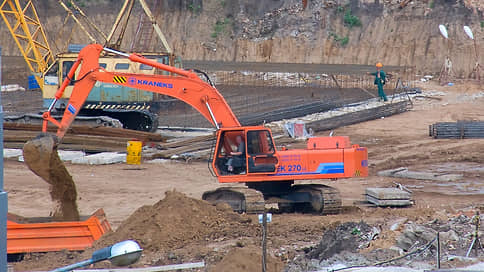Developers have not become more frequent – Newspaper Kommersant No. 20 (7465) dated 02/03/2023
[ad_1]

Due to the decrease in demand for housing, developers have become more cautious in purchasing land for development, which has already led to a reduction in transactions in this segment by 15–20% last year. Investing in the acquisition of sites are mainly developers who have increased profits on the wave of rush sales, and regional players. But their price expectations often diverge from the cost of the proposal, the consultants explain. Against this backdrop, the amount of investment in land this year will remain limited.
The total volume of investments in the purchase of sites for development in 2022 decreased by 14.7% year-on-year, to RUB 219.24 billion, according to NF Group. In the total volume of investments in real estate, according to consultants, the share of sites decreased from 64% to 45% over the year. CORE.XP talks about a decrease in investment in sites in 2022 by 20%, to 183 billion rubles, and the share of sites in the structure of investments – from 56% to 42%. Nikoliers noted that the purchase of land in 2022 accounted for 51.5% of investments against 72% a year earlier.
Irina Ushakova, head of the investment and capital markets department at CORE.XP, attributes the decline in demand for sites to an increase in the cost of lending and a decrease in demand for housing. According to Rosreestr, at the end of last year, 85,000 equity participation agreements were registered in Moscow, which is 14% less than a year earlier.
Aleksey Novikov, managing partner of NF Group, says that the share of sites in the total volume of investments is also being eroded due to high activity in other segments. Due to the departure of foreign companies from the market, offers of high-quality finished projects have appeared, he points out. According to NF Group, the total volume of investments in real estate in 2022 grew by 21% year-on-year, to RUB 487.2 billion. Timur Ryvkin, director of the land development department at Nikoliers, draws attention to the high base of 2021, which became a record year in terms of investment in sites against the backdrop of preferential mortgage programs and recovery from the pandemic.
Glincom Executive Director Ivan Tatarinov confirmed that developers are now less actively considering new sites: “Demand has dipped, the implementation of projects no longer looks as perfect as before.” In general, a slight decrease in activity can be noted on the market, agrees Alexander Gutorov, Vice President of the Strana Development Group. IQ Estate owner Yunna Ervits believes that developers who have implemented projects on the wave of demand in 2021-2022 can buy land. Sergey Yanchukov, the founder of the Mangazeya Group of Companies, says he believes in the real estate market, and his company plans to close at least two deals this year. Samolet group managing director Vladimir Komar also said that the group is looking at sites in Moscow and the regions, and the share of the latter in the portfolio will grow.
Irina Dobrokhotova, Chairman of the Board of Directors of Best Novostroy, notes the discrepancy between the price expectations of sellers and potential buyers of building sites in Moscow. According to her, market leaders are ready to sell part of the land portfolio due to the decrease in profitability, but these areas are mainly considered by regional developers. And the latter are often not ready to enter into projects with lower profitability than in their native region, where they, as a rule, have administrative resources, says Ms. Dobrokhotova. Commercial Director of Optima Development Dmitry Golev confirms that the cost of most sites, taking into account the fee for changing the type of permitted use, is now excessively high.
Irina Ushakova doubts that the interest of developers in the sites will grow in 2023. According to her forecasts, about 300 billion rubles can be invested in real estate in general, of which 200 billion rubles can be invested in commercial facilities. “The process of leaving foreign owners continues, and investors are less focused on acquiring sites,” the expert says. Alexey Novikov believes that the share of sites in the volume of investments will remain at the level of 40-50%. And the managing partner of Metrium, Nadezhda Korkka, recalls that the construction cycle usually takes about three years from the purchase of a site to the start of sales, and most of the current difficulties will no longer be relevant.
[ad_2]
Source link





